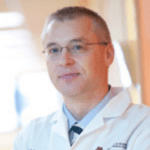Gene & Cell Therapy in Recessive Dystrophic Epidermolysis Squamous Cell Carcinoma
Lay summary
Patients with RDEB are at an increased risk of an aggressive squamous cell carcinoma (SCC) which is usually fatal. Doctors start checking skin for signs of cancer from the early teens – SCC remains the biggest cause of mortality in RDEB; 80% of patients will die from it by age 40.
Surgery and/or chemotherapy do not uniformly treat or cure these cancers, so new therapies are urgently needed.
The aim of this lab-based project is to be able to eventually give modified immune cells to EB SCC patients to seek and destroy cancer cells, without effects on healthy tissue. The cells that are under investigation can be grown to large numbers and, if proven to work, could form an off-the-shelf and widely available treatment.
Scientific Summary
This project employs next generation immune therapy approaches to create a population of T-regulatory and gamma delta T cells with potent on-tumour targeting properties with minimal off-tumour toxicities. These cells can be archived as an off-the-shelf clinical therapy for treating EB SCC.
We have identified molecules differentially expressed in RDEB SCC. We have beta tested bispecific and trispecific killer engager molecules and an EpCAM chimeric antigen receptor which target these RDEB SCC specific molecules.
An ideal population of cells would be ones that have maximal anti-tumour properties but dramatically reduced capacity to cause cytokine release syndrome. This project aims to characterize an optimized cell combination for the eradication of EB SCC in a xenogeneic murine model.

